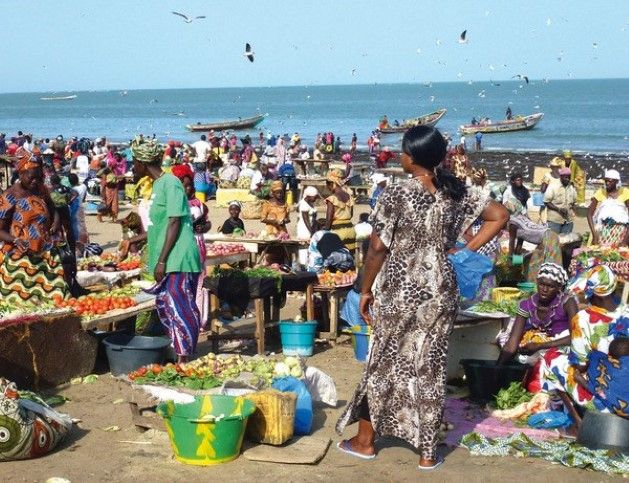
Chinua Achebe’s critically acclaimed memoir, “There was a country”, is a personal reflection on the Nigeria-Biafra war. The father of African literature begins with the popular idiom drawn from an Igbo proverb, “a man who does not know where the rain began to beat him cannot say where he dried his body”.
Africanist political and social science scholars have at least used the phrase once, “When did the rains start beating us?” as a fitting African embodiment for lament over a broken country. Fifty-four years of her independence, The Gambia in many respects, resembles the shattered dream of a prosperous Nigeria that Achebe mourns in his powerful memoirs. “There was a country, but it is a country no longer”. The Gambia’s most basic staple food, “Super-Kanja” is now an overpriced meal. The price of cat-fish has risen to unprecedented levels. It is the talk everywhere I go these days even at funerals.
There are jokes doing the rounds on social media showing how eating “Super Kanja” has become a status symbol. Some are funny and worthy of a chuckle. However, the laughter is a mask for the anger repressed inside. I understand for many Gambians, humour is how we cope with the collective trauma that systemic corruption at all levels of government has visited on our personal lives. When things get bad, laughter is good medicine. Chinua Achebe captured the sentiment succinctly in his novel Arrow of God, “When suffering knocks at your door and you say, there is no seat for him, he tells you not to worry because he has brought his own stool”.
With a box of smoked cat fish retailing above $ 125, the Gambian staple has graduated into a luxury food and a privilege that the masses are struggling to afford. It is no surprise that “Super Kanja” has become a key social and political issue and the Gambians are politely reminding their leaders that they cannot eat ‘politics on an empty stomach’. The opposition has latched onto it with popular rhetoric but to the jaded citizens weary of empty talk, politicians are all part of a ruling class and the eager puppets of big business looking out for their own self-interests.
Politics is supposed to have real relevance to the empowerment of people’s lives. We are a country that is now accustomed to operating in a parasitic relationship with its political leadership. The big question for the Gambian voters in the coming election is survival rather than change. Where others seek to thrive, all we ask is to survive. So, in many respects, we are the architects of our own suffering. Exploitation, like any parasite, cannot exist without a compliant host.
The muted protest to the “Super Kanja” crisis is a good indicator of how apathetic Gambians have become to their own suffering. The starvation of entire communities in the forgotten rural areas does not even move us anymore.
In the 80s, Captain Thomas Sankara, the assassinated revolutionary leader of Burkina Faso, preached that development must be rooted in fulfilling the basic needs of the people.
“What is imperialism? Look at the food on your plate when you eat. These imported grains of rice, corn, and millet – that is imperialism.” Sankara told a simple truth, “He who feeds you, controls you” and in the Gambia the food cartels own us.
A government that cannot relate to its people’s basic needs is akin to a greedy parent vomiting over the shoes of its own famished children. Our locally produced food is not even a central factor of our economic strategy in a country where agriculture is the most important economic sector. It is a spectacular failure of imagination for a nation in the Aquarian age.
Therefore Achebe, the grandfather of the African idiom offers us a space for deep historical reflection on the state of our nation in his memoirs on the problem with Nigeria. I find myself struck by a similar sense of frustration as I bear witness to the Gambia’s potential squandered by those gifted with the sacred duty of leadership.
By Alagi Yorro Jallow











Recent Comments